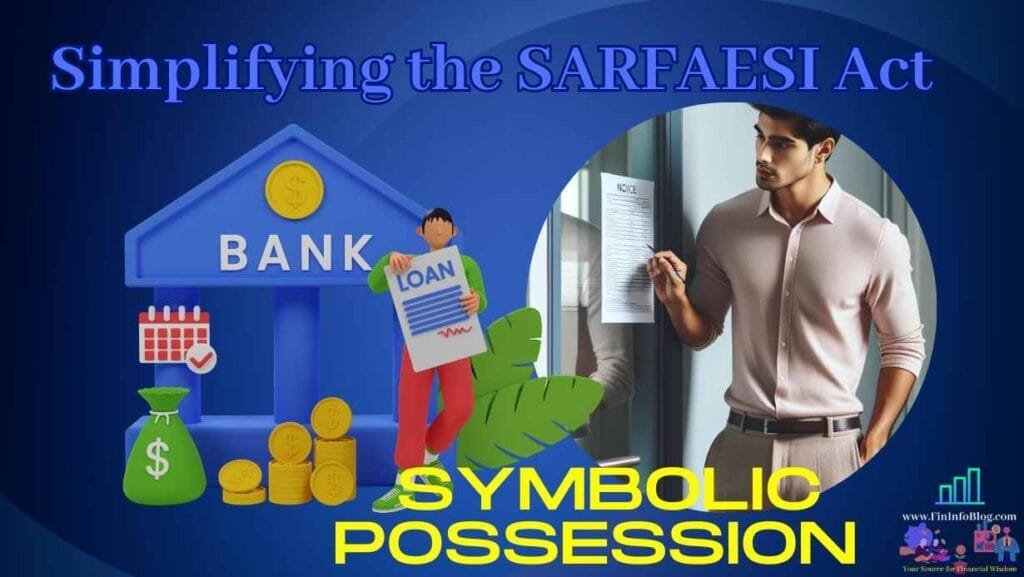What happens if we do not pay personal loan / Bank Loans ?
On my Quora page, we often receive questions like, “What happens if we do not repay a loan to the bank?” Some ask about personal loans, others inquire about home loans or mortgage loans, and some seek information on car loans, among similar queries. Before addressing your concerns, it’s important to clarify that intentionally defaulting on the repayment of a bank loan is akin to a crime. We should repay our bank loans in a timely manner.
What will happen if some borrowers do not repay the bank loans ?
When we fail to repay the EMI or interest amount in our bank loans account, the account becomes overdue. Overdue signifies that a demand for payment has been issued by the borrower, but the payment has not been made. The bank’s CBS system (Core Banking System) begins counting the number of days since the account became overdue. In the case of a default, within the initial 30 days, the bank categorizes the account as SMA-0 (Special Mention Account-0). This means that the account has not yet transitioned to the status of Non-Performing Asset (NPA), but it has been downgraded from being a standard and regular account.
After 30 to 60 days, the account is further downgraded to the SMA-1 category. Additionally, between 61 to 90 days, it falls into the SMA-2 category, and on the 91st day, the account is classified as a Non-Performing Asset (NPA). For more clarification you may read the RBI guideline from the RBI official website.
The bank’s recovery actions depend on the type of loan, whether it is secured or unsecured. A loan is considered secured when the bank has collateral, such as a mortgaged property, a pledged fixed deposit receipt, or an assigned life insurance policy, to back it. If the value of the collateral is greater than the loan amount, it is referred to as fully secured; otherwise, it is termed partly secured.
In the case of a personal loan, which is an unsecured loan, it means that we haven’t provided any collateral or security to the bank. Instead, we’ve given them a written promise to repay the loan through monthly EMIs upon receiving our salary. Because it’s an unsecured loan, banks typically charge higher interest rates for personal loans.
When a borrower falls behind on their personal loan payments, the bank will issue notices to prompt repayment. If the borrower does not respond, the bank may take legal actions, such as filing a lawsuit. The bank will continue to actively communicate with the borrower until they receive the outstanding amount.
What happens if bank loans not paid?
If the borrower is genuinely facing financial difficulties, the bank may assess their situation and offer options such as restructuring the loan account or a one-time settlement (OTS). In an OTS, you agree to pay a mutually acceptable amount to your banker, and the bank closes the loan by writing off the remaining dues. However, it’s worth noting that opting for an OTS is not advisable, as it can have a negative impact on your CIBIL score. This can make it difficult to obtain loans from banks in the future.
What is SARFAESI ACT?
SARFAESI stands for the Securitization and Reconstruction of Financial Assets and Enforcement of Security Interest Act. This act allows your bank to sell your residential or mortgaged property to recover outstanding dues or the entire bank loans owed to the bank.
What is SARFAESI notice?
Banks issue a demand notice to the defaulter under section 13(2) of the SARFAESI Act. This notice requests the defaulter to deposit the overdue amount and provides a 60-day timeframe to do so. If the defaulter repays the loan within these 60 days, the bank withdraws the demand notice. However, if the repayment is not made within this period, the bank may proceed with further actions.
What is SARFAESI symbolic possession?

As discussed earlier, if you are unable to repay your bank dues within 60 days, the bank issues a possession notice under Section 13(4) of the SARFAESI Act. This notice signifies the bank’s intention to take possession of the property. When the bank issues or posts such a notice at your home or on your mortgaged property, it symbolically indicates that the bank has taken possession of the property. Subsequently, the bank, along with all the necessary loan, recovery, and SARFAESI-related documents, submits an application to the District Magistrate seeking assistance in physically taking possession of the property.
What is SARFAESI Auction?
In the next step, the bank issues a sale notice indicating that the property will be put up for auction after a period of 30 to 35 days. If you repay the loan during this time frame, the bank will withdraw the auction proceedings. However, if the property goes through the auction, the highest bidder will be provided with a certificate of sale, and the bank will transfer the property to the winning bidder.
What is DRT?
DRT stands for Debt Recovery Tribunal. You can seek assistance from the DRT court to halt the bank’s actions against you. When you file a case, it is referred to as an SA (Securitization Application), and when the bank files a case against you, it is known as an OA (Original Application). Typically, the DRT court primarily assesses whether the bank has followed all the steps outlined in the act correctly or not. If the DRT court determines that all actions were conducted in accordance with the law, they may issue an order in favor of the bank.
It is advisable to repay bank loans on time and only take loans within your earning capacity. If you encounter difficulties in repayment, it’s important to have a discussion with your banker to explore possible solutions and avoid potential legal actions.
